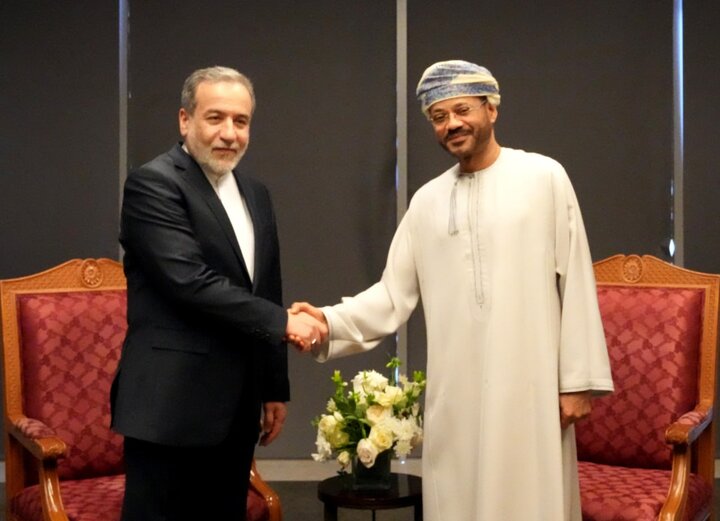Iran, Oman FMs hold key meeting in Muscat

TEHRAN, Apr. 12 (MNA) – Iranian Foreign Minister Abbas Araghchi, who's on a visit to Muscat for talks with US, held a key meeting with his Omani counterpart Badr bin Hamad Al Busaidi on Saturday.
Heading a delegation, the Iranian top diplomat has traveled to Oman to participate in indirect talks with the United States on the nuclear issue and the lifting of oppressive and illegal sanctions.
Upon his arrival in the neighboring country, Araghchi Omani counterpart Badr bin Hamad Al Busaidi.
During this meeting, the Iranian Foreign Minister hailed the firm and long-standing relations between Tehran and Muscat in all fields and appreciated Oman's responsible approach to regional issues and developments.
He considered hosting the indirect Iran-US talks in Muscat a sign of this approach and thanked the Omani Foreign Minister for his attention to this issue.
The Omani Foreign Minister also described the Oman-Iran bilateral relationship as a privileged one and thanked the Islamic Republic of Iran for choosing Muscat to hold these important talks.
During this meeting, Badr bin Hamad Al Busaidi briefed the Iranian top diplomat on the anticipated arrangements and preparations for today's indirect talks.
The Iranian Foreign Minister also provided the Islamic Republic of Iran's axes and positions to the Foreign Minister of Oman for transfer to the American side.
Earlier on Saturday morning, Iranian Foreign Ministry Spokesperson Esmaeil Baghaei wrote on X that the Iranian negotiating team is determined to use all capacities to protect Iran's authority and national interests.
On April 8, Iranian Foreign Minister Abbas Araghchi said the Oman talks are an opportunity to test the seriousness of the US, “which has a long history of non-commitment and unilateralism."
In 2018 and during his first term in office, US President Donald Trump withdrew the United States from a previous agreement on Iran’s nuclear program – formally known as the Joint Comprehensive Plan of Action (JCPOA) – and launched a maximum pressure campaign against the country.
Trump restored that policy after returning to the White House for a second term in January, but he has since signaled a willingness to make a new deal to replace the JCPOA.
On March 12, Trump sent a letter to Leader of the Islamic Revolution Ayatollah Seyyed Ali Khamenei, asking for negotiations to reach a new deal and threatening military action if Tehran refused.
Iran has ruled out direct negotiations with the US under pressure and threats but says indirect talks remain an option.





